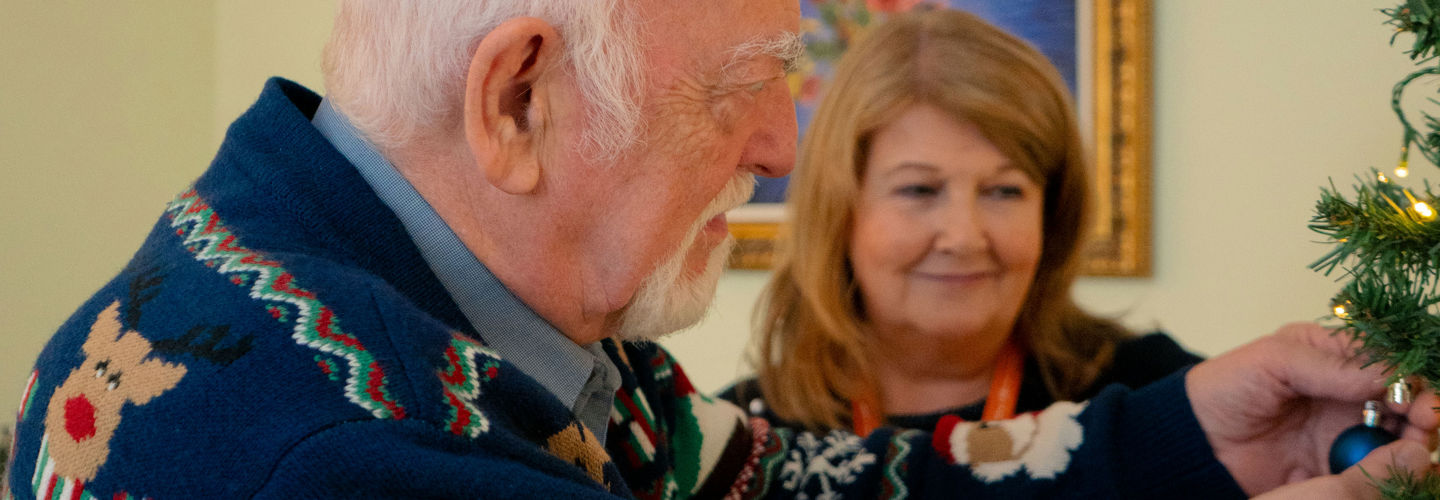
Embracing Positive Ageism: Transforming How We See Later Life
Published: 01/07/2025
Embracing Positive Ageism: Transforming How We See Later Life
Picture this: a 75-year-old learning to paint watercolours for the first time, a 68-year-old starting a small business, or an 80-year-old becoming a community mentor. These aren't exceptional stories—they're becoming the new normal as we witness a remarkable shift in how society views aging.
For too long, growing older has been painted with a brush of decline and limitation. But a quiet revolution is happening, one that celebrates the vibrancy, wisdom, and untapped potential that comes with age. This isn't about pretending aging has no challenges—it's about recognising that later life can be a chapter of growth, purpose, and joy.
What Is Positive Ageism Really About?
Positive ageism flips the script on aging. Instead of focusing on what older adults supposedly can't do, it highlights what they bring to the table: decades of experience, hard-won wisdom, emotional resilience, and often a clarity about what truly matters in life.
Research backs this up beautifully. Studies show that people who embrace positive views of aging don't just feel better—they actually live longer, stay healthier, and maintain sharper minds. It's as if optimism about aging becomes a self-fulfilling prophecy.
The key is balance. True positive ageism isn't about glossing over real challenges or treating older adults like inspirational mascots. It's about seeing each person as a complete individual with their own story, strengths, and autonomy to shape their aging journey.
The Perception Revolution
Something fascinating is happening with how we define "old age." The goalposts keep moving—what previous generations considered elderly, we now see as middle-aged. Today's 70-year-olds are often more active and engaged than 60-year-olds were a generation ago.
This shift isn't just in our heads. Older adults today are genuinely more physically active, socially connected, and intellectually curious than their predecessors. They're traveling, learning new skills, starting second careers, and redefining what retirement looks like.
When older adults feel valued and see possibilities ahead, remarkable things happen. They take better care of their health, stay more socially connected, and approach challenges with greater resilience. It's a beautiful cycle where positive attitudes create positive outcomes.
Making It Real: Right at Home Enfield's Approach
While the concept of positive ageism sounds wonderful in theory, organisations like Right at Home Enfield are proving how it works in practice. They've moved beyond traditional care models to create something more holistic—supporting not just physical needs but fostering genuine community and purpose.
Walk into one of their programs and you'll find older adults engaged in chair yoga, crafting beautiful artwork, participating in adapted sports, or sharing stories through music. These aren't just activities to pass time—they're opportunities for connection, creativity, and continued growth.
What makes their approach special is inclusivity. They run dementia-friendly sessions and ensure that cognitive challenges don't become barriers to participation. Everyone has something to contribute, and everyone deserves to feel valued and engaged.
The Ripple Effect
Here's what's exciting about positive ageism—it doesn't just benefit older adults. When communities embrace the value of all generations, everyone wins. Younger people gain mentors and role models for aging well. Families stay more connected across generations. Communities become richer and more resilient.
Think about the wisdom that comes from lived experience, the perspective that comes from having weathered life's storms, and the freedom that can come from having less to prove and more to give. These are gifts that older adults bring to their communities when we create space for them to shine.
Building Tomorrow's Aging Experience
The movement toward positive ageism is still growing, and it needs all of us. It means challenging our own assumptions about aging, celebrating the older adults in our lives, and creating communities where people can look forward to every stage of life.
Organisations like Right at Home Enfield are showing what's possible. We are not just changing how we care for older adults—We are transforming how we think about aging itself. Through the work, we are helping create a future where getting older is seen not as something to fear, but as an opportunity for continued purpose, connection, and yes, even adventure.
The next time you think about aging—whether your own future or the older adults around you—remember that the story is still being written. And increasingly, it's a story of possibility, growth, and the beautiful complexity of lives well-lived and still unfolding.
The future of aging is bright, and organisations across the UK are leading the way in showing us how to embrace later life with optimism, dignity, and joy. The question isn't whether we'll age—it's how we'll choose to see that journey.
